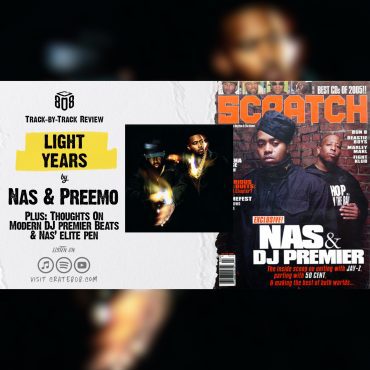
Slavery & the New World, Pt. 4; the Negro Church, Pt. 4; the Reconstruction Period, Pt. 4
Our Scripture verse for today is Luke 9:23-24 which reads: “And he said to them all, If any man will come after me, let him deny himself, and take up […]
 play_arrow
play_arrow
 play_arrow
play_arrow
 play_arrow
play_arrow
 play_arrow
play_arrow
 play_arrow
play_arrow
 play_arrow
play_arrow
The World Needs You Now – A Life Changing Invitation podcast
 play_arrow
play_arrow
THE FRUIT LOOPS TASTE CHALLENGE EXPOSED! -You Should Know Podcast- podcast
 play_arrow
play_arrow
Make life harder (and better): Learn another language. podcast
 play_arrow
play_arrow
Stop Announcing, Start Becoming podcast
 play_arrow
play_arrow
What Makes Men Feel Insecure podcast

Our Scripture verse for today is Psalm 138:2 which reads: “I will worship toward thy holy temple, and praise thy name for thy lovingkindness and for thy truth: for thou hast magnified thy word above all thy name.” Our History of Black Americans and the Black Church quote for today is from Lee June, a professor at Michigan State University and the author of the book, “Yet With A Steady Beat: The Black Church through a Psychological and Biblical Lens.” He said, “One of the earliest known treatments of the importance and role of songs in the development and survival of Black people was done by W.E.B. DuBois. His essay that appeared in the book The Souls of Black Folk was titled ‘Of the Sorrow Songs.’ On this contribution and unique art form, DuBois stated: ‘Little of beauty has America given the world save the rude grandeur God himself stamped on her bosom; the human spirit in this new world has expressed itself in vigor and ingenuity rather than in beauty. And so by fateful chance the Negro folksong — the rhythmic cry of the slave — stands today, not simply as the sole American music, but as the most beautiful expression of human experience born this side of the seas. It has been neglected, it has been, and is, half despised, and above all it has been persistently mistaken and misunderstood; but notwithstanding, it still remains as the singular spiritual heritage of the nation and the greatest gift of the Negro people.'” Our first topic for today is titled “The Slave Trade and the New World (Part 5)” from the book, “From Slavery to Freedom” by John Hope Franklin. The Big Business of Slave Trading, continued Holland’s wars with France and England in the late seventeenth century left it considerably weakened and never again did it achieve the dominance in the slave trade that it formerly held. Many independent Dutch traders sought wealth in Africa, a goal that the Dutch West India Company tried to obviate by offering licenses to such people. Because of its aggressiveness in the eighteenth century, Holland encountered new difficulties with other countries. Dutch traders pushed into sections of Africa that were under French influence, while on the Guinea coast Holland’s seizure of certain possessions from Portugal caused much concern in England. In the West Indies and in South America, Holland used its holdings as centers for the distribution of slaves throughout the New World. Although the end of the century brought a noticeable decline in Dutch influence both in Africa and the New World, this decline did not take place until after Dutch traders had reaped a bountiful harvest from the slave trade. … Our second topic for today is “The Negro Church: A Nation Within a Nation, Part 5” from The Negro Church in America by E. Franklin Frazier. He writes: — The Church as an Agency of Social Control, Part 2 The problem of monogamous and stable family life was one of the most vexing problems that confronted northern white missionaries who undertook to improve the morals of the newly liberated blacks. These missionaries undertook to persuade the freedmen to legalize and formalize their marriages. There was resistance on the part of many of the slaves since legal marriage was not in their mores. Sometimes missionaries even attempted to use force in order that the freedmen legalize their sexual unions. … Our third and final topic for today is from “The Black Church in the U.S.: Its Origin, Growth, Contributions, and Outlook” by Dr. William A. Banks. Today we are looking at part 5 of Chapter 4: “Reconstruction and Retaliation — 1866 to 1914” — THE BAPTISTS Prior to the Civil War, the Baptists were composed almost entirely of local congregations, but they had attracted more Negroes in the South than had other denominations, After the Civil War they enjoyed phenomenal growth and quickly became the most numerous. A total membership in 1850 of 150,000 became nearly 500,000 by 1870. Independent local churches sprang up overnight. Since there was no educational requirement, all who felt the “call” to preach let it be known. …

Our Scripture verse for today is Luke 9:23-24 which reads: “And he said to them all, If any man will come after me, let him deny himself, and take up […]


Copyright Blackpodcasting 2025